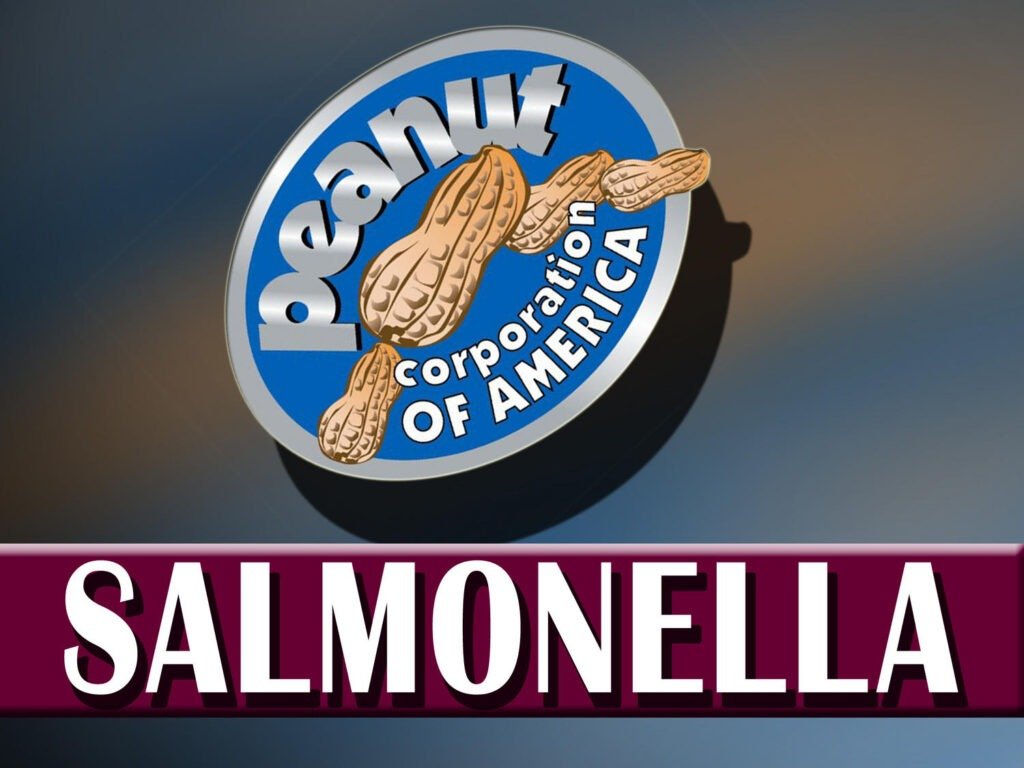In January 2009, the Peanut Corporation of America (PCA) was at the center of one of the most severe food safety crises in recent history. The outbreak of Salmonella Typhimurium linked to PCA’s peanut products led to a nationwide recall, numerous illnesses, and several fatalities. This case study examines the Salmonella outbreak, its impact on PCA, and the broader implications for food insurance and risk management. By analyzing this incident, we can understand the critical role of insurance in managing food safety crises and the importance of effective risk mitigation strategies.
Background of the Contamination
Overview of Peanut Corporation of America
Founded in 1977 and headquartered in Blakely, Georgia, PCA was a major supplier of peanut products, including peanut butter, to various food manufacturers and distributors. The company’s products were widely used in baked goods, snacks, and other processed foods. PCA’s long-standing presence in the industry contributed to its reputation for quality and reliability.
The Salmonella Outbreak
In early 2009, reports emerged linking a Salmonella Typhimurium outbreak to PCA’s peanut products. The outbreak led to a series of illnesses and, tragically, several deaths. The Centers for Disease Control and Prevention (CDC) and the Food and Drug Administration (FDA) launched a comprehensive investigation to trace the source of the contamination.
The investigation revealed that the Salmonella contamination originated from PCA’s processing plant in Blakely, Georgia. The plant was found to have serious lapses in hygiene and sanitation practices, contributing to the spread of the bacteria. In response to the outbreak, PCA issued a massive recall of peanut products, and the company’s operations were eventually shut down.
Public and Regulatory Response
The Salmonella outbreak triggered a widespread public health response. The FDA conducted a thorough inspection of PCA’s facilities and identified significant violations of food safety regulations. The contamination led to a substantial media frenzy and heightened scrutiny on PCA’s operations and safety practices.
Impact on Peanut Corporation of America
Financial Consequences
The financial repercussions for PCA were severe. The company faced immense costs associated with the recall, including expenses related to product disposal, facility cleaning, and recovery efforts. The financial burden was compounded by legal costs arising from lawsuits and settlements.
PCA’s recall of its peanut products led to substantial revenue losses due to the halted production and the subsequent decline in consumer confidence. The company’s financial instability was exacerbated by the substantial legal and regulatory costs associated with the outbreak.
Reputational Damage
The Salmonella outbreak had a devastating impact on PCA’s reputation. As a major supplier of peanut products, PCA’s failure to maintain adequate food safety standards severely damaged consumer trust. The outbreak undermined the company’s credibility and resulted in a significant loss of market share.
Restoring the company’s reputation required extensive efforts, including public relations campaigns, transparency about the incident, and assurances of improved food safety practices. The damage to PCA’s brand was long-lasting, affecting its ability to regain consumer confidence.
Legal and Insurance Implications
The outbreak resulted in numerous lawsuits filed by affected consumers, their families, and other stakeholders. The legal claims included allegations of negligence, product liability, and damages for illnesses and deaths caused by contaminated products. The legal challenges highlighted the critical importance of having adequate insurance coverage to manage such risks.
Implications for Food Insurance
Insurance Coverage and Claims
The PCA Salmonella outbreak underscores several key aspects of food insurance:
- Liability Insurance: Liability insurance is crucial for covering the costs associated with legal claims and damages resulting from foodborne illnesses. For PCA, comprehensive liability coverage would have been essential in managing the financial impact of lawsuits and settlements. Effective liability insurance helps mitigate the risk of significant financial losses due to legal claims.
- Product Recall Insurance: Product recall insurance covers expenses related to recalling contaminated products from the market. This type of insurance is vital for managing the financial burden of product recalls, including costs for communication, disposal, and recovery efforts. For PCA, having product recall insurance would have been crucial in mitigating the financial impact of the extensive recall.
- Business Interruption Insurance: Business interruption insurance provides coverage for lost income and additional expenses incurred due to disruptions in operations. The temporary shutdown of PCA’s processing plant and the subsequent decline in sales made business interruption insurance a key component of the company’s risk management strategy.
- Crisis Management Coverage: Crisis management coverage assists with managing the costs of public relations efforts, legal expenses, and other crisis-related expenditures. This type of insurance would have been valuable in addressing the reputational damage and regulatory scrutiny faced by PCA.
Risk Management and Prevention
The PCA Salmonella outbreak highlights the importance of proactive risk management and preventive measures in the food industry:
- Enhanced Food Safety Protocols: Following the outbreak, PCA’s failure to adhere to proper hygiene and sanitation practices emphasized the need for rigorous food safety protocols. Implementing comprehensive food safety measures, including regular sanitation, employee training, and adherence to regulatory standards, is essential for preventing contamination.
- Regular Inspections and Audits: Regular inspections and audits of food safety practices are critical for identifying potential vulnerabilities and ensuring compliance with regulatory standards. For PCA, ongoing assessments and evaluations of food safety protocols were crucial for addressing issues and preventing future outbreaks.
- Supplier Management: Ensuring the safety and quality of ingredients is vital for preventing contamination. PCA’s focus on sourcing high-quality peanuts and maintaining strict supplier standards was a key aspect of risk management.
- Crisis Preparedness: Developing a crisis management plan that includes protocols for addressing foodborne illnesses, communicating with stakeholders, and managing public relations is essential for effectively handling emergencies. PCA’s crisis response demonstrated the need for preparedness and quick action in managing food safety crises.
Lessons Learned and Future Considerations
Transparency and Communication
One of the critical lessons from the PCA Salmonella outbreak is the importance of transparency and communication. Proactively sharing information about the outbreak, the steps taken to address it, and the measures implemented to prevent future incidents helps build trust with customers and stakeholders. Clear and timely communication is essential for managing the crisis and maintaining a positive reputation.
Continuous Improvement
The PCA Salmonella outbreak serves as a reminder that food safety is an ongoing process that requires continuous improvement. Regularly updating food safety practices, investing in employee training, and staying informed about emerging risks and best practices are essential for maintaining a strong risk management framework.
Insurance Adaptation
The incident highlights the need for food businesses to continually review and adapt their insurance coverage to address evolving risks. As the food industry evolves and new risks emerge, businesses should work closely with insurance providers to ensure their coverage remains comprehensive and relevant.
Consumer Trust and Education
Restoring consumer trust is a critical component of recovering from a foodborne illness outbreak. Educating consumers about the steps taken to enhance food safety, sharing success stories, and demonstrating a commitment to quality are key strategies for rebuilding confidence.
Conclusion
The Peanut Corporation of America’s Salmonella outbreak was a significant event with far-reaching implications for food safety, risk management, and insurance in the food industry. The outbreak highlighted the importance of having robust insurance coverage, implementing proactive risk management practices, and maintaining transparency and communication with stakeholders.
For PCA, the incident led to substantial financial and reputational challenges but also provided valuable lessons for the broader food industry. By adopting comprehensive food safety measures, investing in insurance coverage, and focusing on continuous improvement, food businesses can better navigate risks and safeguard their operations against future incidents. The experience underscores the need for vigilance, preparedness, and resilience in managing food safety and insurance in an ever-evolving industry landscape.



